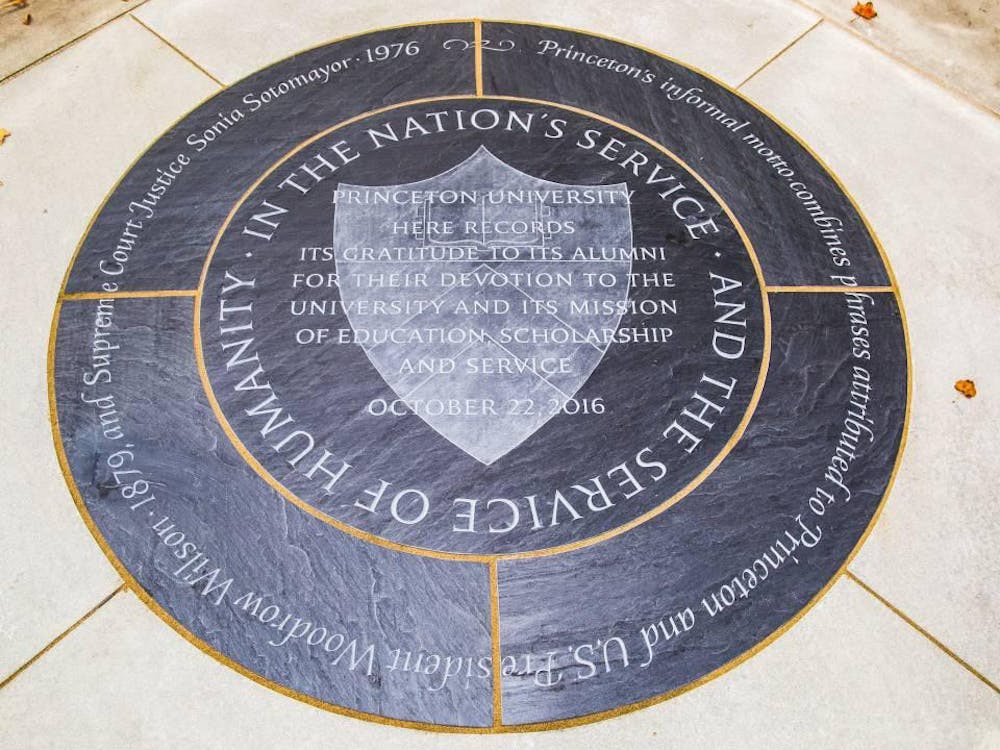In late November, just days after a CIT employee was quoted in the 'Prince' as saying that it would not follow Carnegie Mellon's footsteps in monitoring student network use, CIT conducted an unannounced "sampling of campus network activity." We learned about this server sweep when CIT e-mailed students who had been found "uploading MP3s." The e-mail warned them to uninstall the program Napster if they had it on their computers. It also reminded them of the University's vigilance in respecting copyright laws and its desire to avoid any risks incurred through student infringements of those laws.
But the phantom of copyright liability should not overshadow issues of basic privacy. The University's intrusion into students' computer use undermines Princeton's balance of rules and responsibilities as enshrined in the Honor Code. Students are entrusted to take exams without institutionalized supervision, but the space for individual responsibility should not stop with final exams. Princeton students can assert their right to privacy in their personal activities just as they pushed for the Honor Code over 100 years ago.
The University may have legitimate concerns over intellectual property rights, but the November server sweep was not the way to bring students on board. Respect for copyright laws could just as easily begin in the copy room of Firestone Library. No one checks to see if students are copying entire books and the University should not become any more aggressive in the realm of computer files.
As recognized in the "No More Napster" e-mail, some MP3 files can be legitimately distributed. Is it the University's responsibility to check the contents of these files or should they just assume that they are all being sent out illegally? What about other kinds of files? If I download racy JPEGs is the University compelled to check those as well? (Perhaps it is already doing so.) Could Microsoft Word files and general e-mails fall under investigation too? The initiative the University took on Nov. 22 continues a disturbing trend of encroaching on student responsibility.
Perhaps more troubling than the casual intrusion into network activity was the lack of student protest over the event. Apparently, excessive enforcement of rules breeds complacency rather than resistance. Despite the problems with a covert check of personal network use, many students expressed little or no frustration over the sweep. There is a sense that this is business as usual at Princeton. With prox card tracking, intrusive fire inspections, and centralization of major decision-making we have become anesthetized to further restrictions on our space and living.
In a vicious cycle, greater infringement evokes not discontent, but complacency and disaffection. More than one student shrugged his shoulders about the server sweep and sighed, "Big Brother" as if the inspection was unfortunate, yet inevitable. But the University is not an Orwellian monolith, and the Big Brother hyperbole is one more excuse for acquiescence in the face of controversial policies. CIT's "eavesdropping" merits a pro-active student response for it undermines the very balance between rules and responsibilities that this university values.
In an institution where students are entrusted to take exams supervised only by their peers, the importance of individual accountability looms large. But the more the University overextends its regulation and monitoring, the more it breaches the borders of students' self-guidance and decision-making.
The balance of rules and responsibilities should extend beyond exam week, and should resonate through the University's respect for all aspects of student life, including what we do on our personal computers. Server sweeps and other intrusions characterize the well-tread path of rule enforcement, but the University must allow students greater space if it is committed to the development of responsibility and personal growth. This space will emerge only through pro-active student initiatives that take responsibility for computer use in private rooms the way they gained control over exam taking in classrooms. Jason Brownlee is a politics graduate student from Rawlings, Va. He can be reached at brown-lee@princeton.edu.







